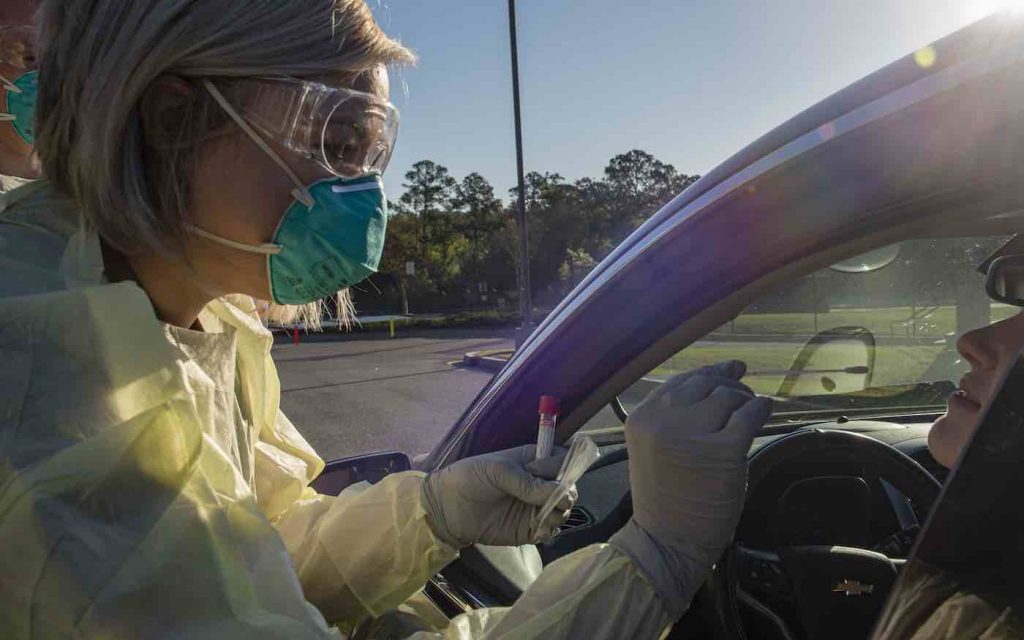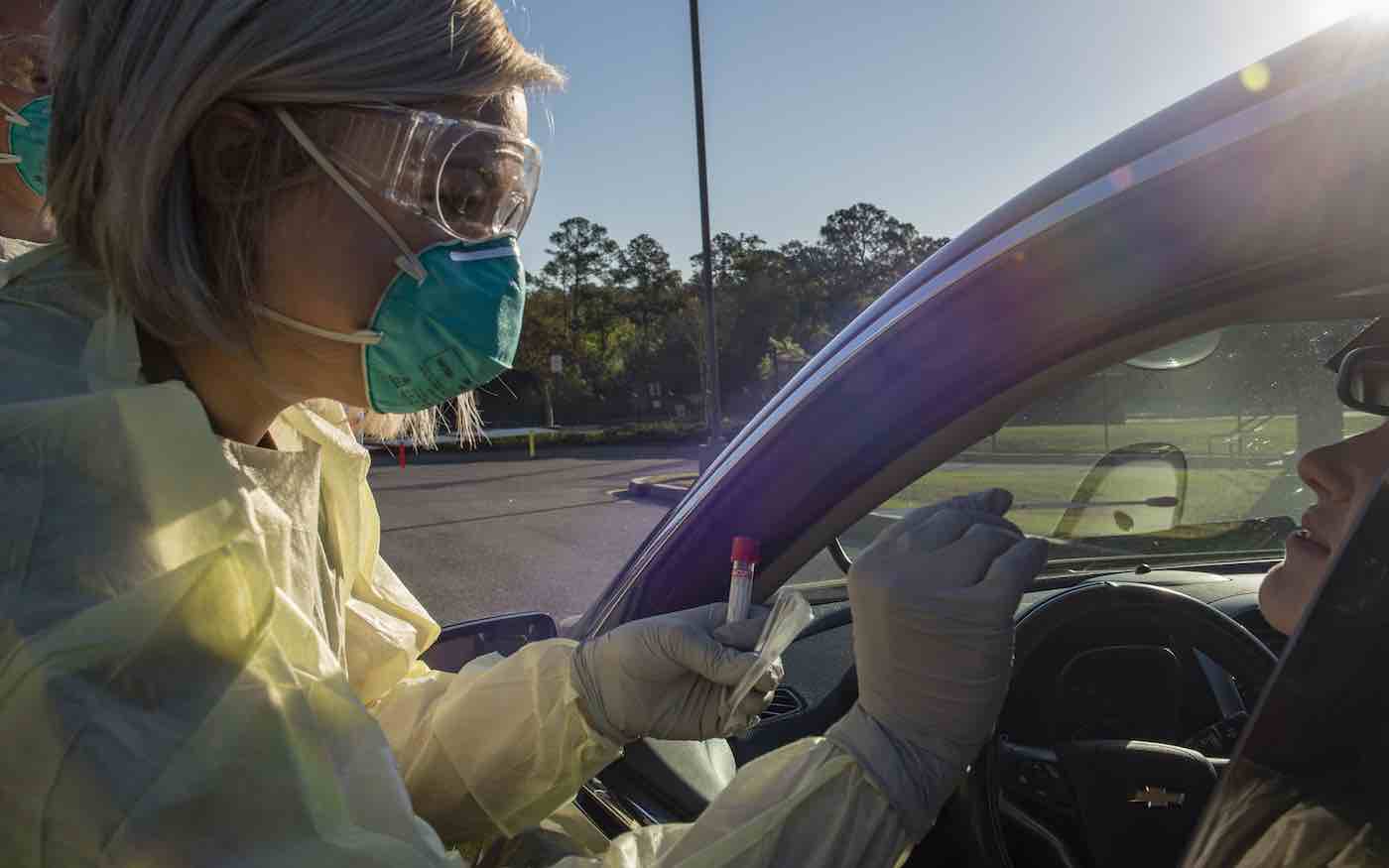
As scientists around the world race to develop an effective vaccine for COVID-19, thousands of young people have volunteered to willingly contract the virus in order to accelerate the research process.
The “1 Day Sooner” campaign is an initiative that is rallying for healthy, low-risk adults to participate in a “human challenge trial” (HCT) for developing a novel coronavirus vaccine.
Typical medical trials test the safety and efficacy of a vaccine by administering the treatment to several thousand people and comparing the outcomes to a control group of patients who have not received the treatment.
“In these traditional trials, after receiving the treatment, participants return to their homes and their normal daily lives so as to test the treatment under real world conditions,” reads the 1 Day Sooner website. “Since only a small proportion of these participants may encounter the disease, it may take a large number of participants and a good deal of time for these trials to reveal differences between the vaccine and placebo groups.”
An HCT trial, on the other hand, could only require 100 participants to willingly contract the infection so that researchers can immediately begin to test the vaccine’s efficacy. In the past, HCT trials have been conducted on treatments for typhoid fever, cholera, smallpox, dengue, and Zika.
Although a coronavirus HCT would obviously come with its own risks, there are a few ways that researchers can minimize the dangers of the trial. For starters, the trial would likely only recruit volunteers between the ages of 20 to 45 who have no underlying health risks. Volunteers would also probably be adults with a high risk of contracting the virus outside of the trial anyway.
RELATED: Irreversible No Longer: Blind Mice See Again Thanks To New Method of Synthesizing Lost Cells
“Finally, study participants would be isolated in highly controlled environments under constant observation,” reads the campaign website. “If infection is detected, they would be provided with excellent medical treatment. Hopefully, pharmaceutical treatments will also be available by the time a study is conducted.”
Adults who have signed up as volunteers for the 1 Day Sooner campaign are not currently bound to any legal obligation to follow through on their offer—but the initiative has already been flooded with support. Since 1 Day Sooner began searching for potential volunteers, almost 24,000 adults across 102 countries have expressed interested in an HCT trial.
The 1 Day Sooner campaign was aptly named because of statistical models estimating that accelerating a vaccine’s approval by one day could save as many as 7,120 lives; speeding up development by three months could save as many as half a million.
Additionally, preliminary studies from two different COVID-19 vaccine trials in the UK and US have shown promising results in safely producing antibody reactions in humans—and scientists are increasingly suggesting that an HCT trial could dramatically accelerate the treatment’s approval while simultaneously weeding out unsuccessful vaccines.
Earlier this month, the World Health Organization released new guidance on how an HCT trial could be ethically justified in the case of a global pandemic. The guidelines emphasize that the participants would have to be thoroughly informed of the risks involved in the trials. For Abie Rohrig, a 20-year-old college student who signed up as a volunteer for the 1 Day Sooner campaign, the risks are worth the reward.
CHECK OUT: New Study Finds Best Material for Homemade Face Masks May Be Two Fabrics Combined
“I know that there are risks, and if I were to do this, and it were to go poorly, then that would be terrible, my family would be really sad,” Rohrig told CNN. “But someone has to step up. It seems like this just needs to happen.”
Need more positive stories and updates coming out of the COVID-19 challenge? For more uplifting coverage, click here.
(WATCH the interview with 1 Day Sooner founder Josh Morrison)
Thousands of people in US want to volunteer for Covid-19 vaccine trials. We speak with founder of 1-Day-Sooner, Josh Morrison for more pic.twitter.com/GnAJNKBuHg
— TRT World Now (@TRTWorldNow) May 14, 2020
Multiply The Good News By Sharing It With Your Friends On Social Media…





















Considering the recovery rate is 97/99% recovery rate it is a rather low risk endeavor. It is a relatively safe virus we are encountering, not like Ebola or MERS that were worse in the past.